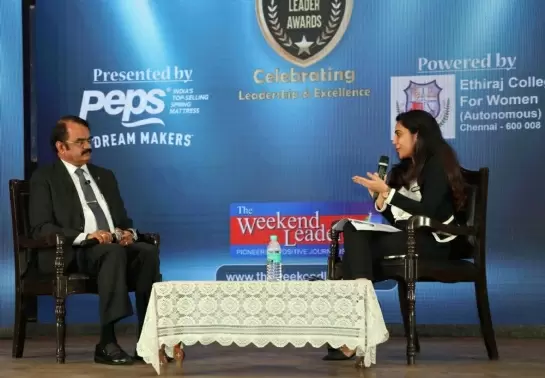A Delhi court delivers landmark verdict sympathising with the Sri Lankan Tamils

26-September-2011
Vol 2 | Issue 38
For all those who have resigned to the unfairness of Indian foreign policy on Sri Lanka - which has been biased in favour of the majority Sinhalese and prejudiced towards minority Tamils - a recent order by a Delhi Metropolitan Magistrate, Arul Varma, should reinforce faith in the Indian judiciary to rise above expediency of the government.
This landmark verdict that sympathises with the plight of Tamils in Sri Lanka and discusses the status of foreign refugees in India was passed last week in a case involving a Sri Lankan Tamil refugee, Chandra Kumar, who was arrested by immigration officials when he tried to leave the country without valid travel documents.
Chandra Kumar pleaded guilty to the charges against him.
The Court freed him treating his 6-month incarceration during the trial period as his punishment, observing that “persons committing the offences for which the accused has been charged with and convicted for, suffer a sentence of imprisonment for a period already undergone in judicial custody, and imposition of some fine."
"The average period of detention usually varies from 15 to 20 days. It is pertinent to note that the convict herein has already been incarcerated for close to 6 months.”
The Government wanted the court to issue an order to deport Chandra Kumar as part of the judgment in the case.
The court refused to order his deportation holding that “handing over a person to a nation where he fears persecution, would make us nothing short of abettors,” and poignantly quoted a few verses from a poem, ‘Refugee Blues’ by W H Auden:
Say this city has a million souls,
Some live in mansions, some live in holes:
Yet there is no place for us,
My dear, there is no place for us,
Once we had a country and we thought it fair,
Look in the atlas and you will find it there:
We cannot go there now,
My dear, we cannot go there now.
Summing up the ethnic conflict in Sri Lanka in its historical perspective, the court noted: “The annals of history are replete with instances where prolonged suppression and tyranny gives rise to rebellion and ultimately to a revolution that might lead to dethroning the unjust regime. After the enaction of the 'Sinhala only' law which made 'Sinhala' as the national language of Sri Lanka and which curtailed job opportunities for the minority Tamilians, led to peaceful protests in the island."
"A time came when peaceful agitations did not yield any result that some fundamentalists took to arms and formed organisations that propagated violence and terror as a means of achieving one’s goal.”
Noting the points raised by Chandra Kumar’s counsel on his client’s ‘well founded fear of persecution’ on being deported to Sri Lanka, the court quoted an extract from the ‘Report of the UN Secretary-General’s Panel of Experts on Accountability in Sri Lanka’ mentioning that it would be of “utmost relevance” (to the verdict).
Following is the passage quoted in the order from the UN Report: “Nearly two years after the end of the fighting, the root causes of the ethnonationalist conflict between the Sinhalese and Tamil populations of Sri Lanka remain largely unaddressed and human rights violations continue."
"There are consistent reports of such activities, some committed by agents of the State or state sponsored paramilitaries; these include arbitrary detention without trial, abductions and disappearances, killings, attacks on the media and other threatening conduct. ... ... ...”
For Sri Lankan leaders rubbishing the UN Report as ‘Darusman Report’ – and not an official UN Report - with the hope that by belittling it they could give it a decent burial, the Delhi court order should come as a wake-up call.
Whether Colombo likes it or not, this Report will be a solid document based on which Governments and Corporations would be taking major decisions in the coming years while dealing with the Sri Lankan government.
Significantly, the Delhi court order also noted that “by deporting the convict herein, there is every apprehension that he will become a victim of genocide, and thus the State of India would have failed to live up to its commitment of preventing genocide under the convention.”
Such an order could not have come at a more appropriate time.
The author is Editor of The Weekend Leader














